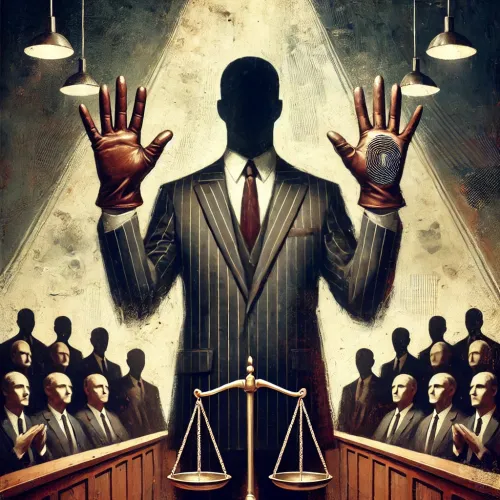The trial of William Penn and William Mead in 1670 was a pivotal moment in legal history, showcasing the power of jury nullification and its role in protecting fundamental liberties. Although this case took place in England, its impact resonated far beyond, shaping the development of jury independence in colonial America and laying the groundwork for modern understandings of justice.
The backdrop for the trial was a period of intense religious persecution in England. The Conventicle Act prohibited unauthorized religious gatherings, targeting dissenters like Quakers, who defied the Church of England's authority. William Penn, a Quaker leader and future founder of Pennsylvania, was charged with unlawful assembly after preaching in public. His co-defendant, William Mead, faced similar accusations.
The case against Penn and Mead appeared straightforward. Authorities presented clear evidence that Penn had preached to a gathering, violating the Conventicle Act. However, the jury, led by Edward Bushell, faced a moral dilemma: should they convict the defendants for actions that violated the law but were rooted in peaceful religious expression?
During the trial, the judge exerted intense pressure on the jury to deliver a guilty verdict. He dismissed Penn's arguments about religious freedom and instructed the jurors to consider only the legality of the defendants’ actions, not the moral implications. When the jury initially refused to convict, the judge locked them in a room without food or water, hoping to compel compliance.
Despite these harsh conditions, the jury stood firm. They returned a verdict of “Not Guilty” for both defendants, asserting their belief that the law itself was unjust. Furious, the judge fined and imprisoned the jurors, including Edward Bushell, for contempt of court. This act of retaliation led to a broader legal battle that culminated in Bushell’s Case.
Bushell’s Case became a landmark ruling in English law. The court held that jurors could not be punished for delivering a verdict according to their conscience, affirming the independence of the jury system. This decision established a fundamental principle: jurors are not mere instruments of the state but arbiters of justice, empowered to challenge laws they deem oppressive or unjust.
The implications of the Penn-Mead trial extended across the Atlantic, influencing colonial America. Early American juries drew inspiration from this precedent, often resisting British-imposed laws that infringed on local rights and liberties. For example, during the lead-up to the American Revolution, colonial juries frequently acquitted individuals charged under unpopular British statutes, from smuggling regulations to sedition laws.
The legacy of the Penn-Mead trial also informed later instances of jury nullification in the United States. Cases like the trial of John Peter Zenger in 1735, where a jury acquitted a printer charged with seditious libel for criticizing the government, echoed the principles established by Bushell’s Case. These acts of defiance reflected the growing belief that juries served as a check on unjust laws, protecting individual freedoms against authoritarian rule.
The Penn-Mead trial holds enduring significance as an example of the jury’s role in balancing law and morality. It underscores the idea that justice is not merely about enforcing statutes but about aligning legal outcomes with ethical principles. This concept has been invoked in various contexts, from abolitionist resistance to the Fugitive Slave Act to modern debates about drug laws and euthanasia.
Critics of jury nullification argue that it undermines the rule of law, creating inconsistency and unpredictability in legal proceedings. However, its defenders point to cases like the Penn-Mead trial as evidence of its importance in safeguarding fundamental rights. Without the jury’s willingness to challenge the Conventicle Act, the principles of religious freedom and jury independence might not have gained the prominence they hold today.
The trial of William Penn and William Mead is more than a historical curiosity—it is a testament to the enduring power of conscience in the pursuit of justice. By defying legal coercion and upholding their moral convictions, the jurors in this case set a precedent that continues to resonate. Their actions remind us that justice requires more than adherence to the law—it demands the courage to stand against injustice, even in the face of personal risk.
In the modern era, the principles established by the Penn-Mead trial remain relevant. They affirm the vital role of jurors as guardians of justice, capable of resisting legal frameworks that fail to reflect societal values. Whether in cases of religious freedom, civil rights, or personal autonomy, the spirit of Penn’s principle endures as a beacon of moral integrity in the legal system. Through their steadfast defiance, the jurors of 1670 laid the foundation for a legacy of justice that transcends time and geography.




